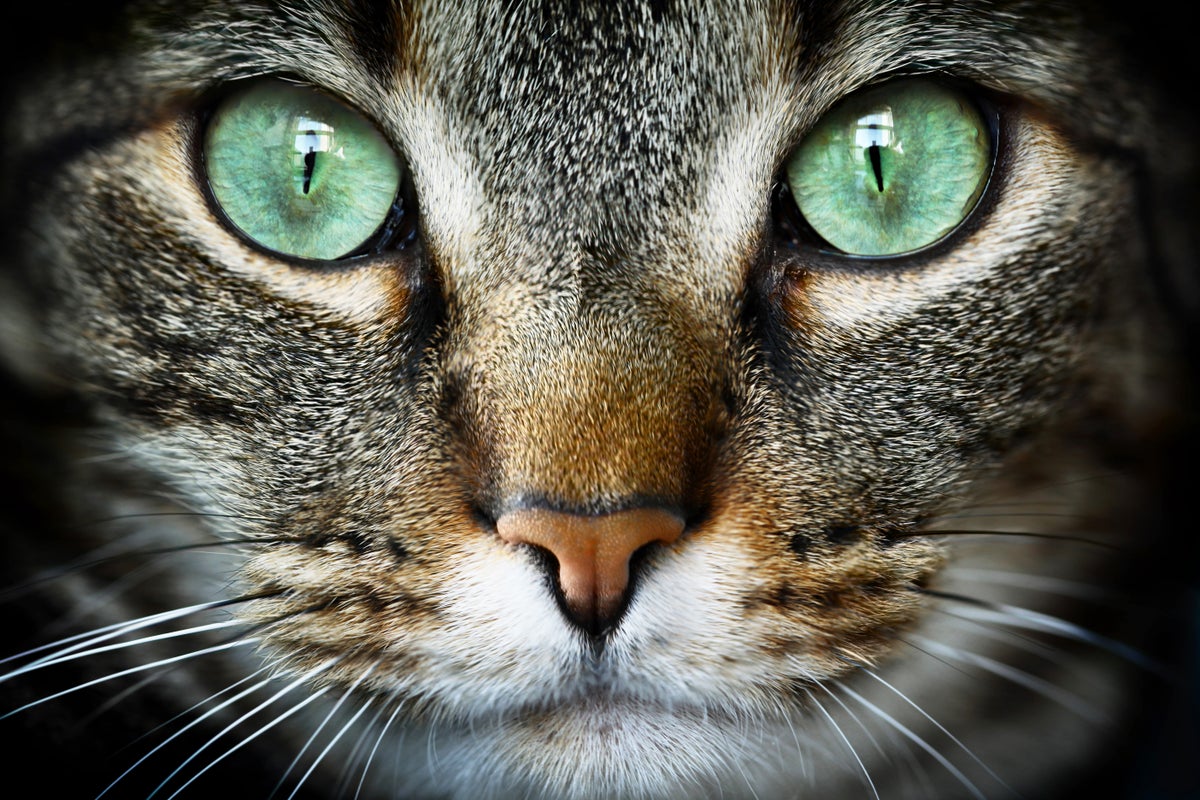Road Runner
Diamond Member
I heard about this before, I'm just not sure how it's possible.
Follow along with the video below to see how to install our site as a web app on your home screen.
Note: This feature may not be available in some browsers.

Why Do Cats Purr?
Many different situations can cause domestic cats to purr, which leads to multiple theories as to why they do it.
Here’s a breakdown of the commonly accepted reasons why cats purr.
Your Cat Is Content
Cat owners have seen their cat purr when they are content and happy, similar to how dogs wag their tails.
When your cat is sitting on your lap and getting pets and scratches, they are probably purring as well, and maybe even kneading your leg or a blanket. This nonverbal form of communication tells you that life is good and that your cat is very happy with the current situation.
Cats probably also associate their purrs with positive interactions with you. When they purr, you continue to pet them. It’s almost as if they are training you.
Your Cat Is Self-Medicating
But what about a cat that is purring during labor? What does cat purring mean then?
Believe it or not, cats also use purring as a form of self-medication and pain control.
According to studies, cats purr at frequencies that help to stimulate healing, particularly of bones and tendons. The frequency may also serve to reduce pain, ease breathing, and build muscles, among other health benefits.
Never heard that. But cats in pain or distress do purr to comfort themselves.

Why do cats purr?
www.scientificamerican.com
Observation, I expect. A cat I had a long time ago who injured his tail playing with a rock on at ledge. He fell off, the rock landed on his tail. When I found him, he was purring, though he was obviously in pain.I did hear that part.
Nice article, but how do we know that it's true?
I heard about this before, I'm just not sure how it's possible.
Yup. Siamese: OH YOUR LEGS BROKE GOOD FUCK YOUI've heard that before, and further that a cat purring can help someone else's bones heal as well. I've never been able to find any credible scientific evidence one way or the other, and I have to think that it sounds dubious.
At some time during my recovery from my broken leg, my nurse/case manager brought up the subject of a bone stimulator. Both my orthopedic surgeon and my occupational doctor expressed great skepticism about such devices, and recommended against it.
During these conversations, I mentioned the claim about a cat's purring, and wondered if these bone stimulators worked on a related principle. I also faintly toyed with the idea of constructing a device that I could strap to my leg, that would vibrate at the approximate frequency of a cat purring.
My actual cat was not terribly cooperative with efforts to get her to cuddle against my injured leg and purr. She's a Siamese, with the attitude that is one of the defining traits of that breed.
View attachment 585843View attachment 585845
Yup. Siamese: OH YOUR LEGS BROKE GOOD FUCK YOU

They do have quite a temperament.
They are like The Crimson Bolt's sidekick, Boltie.
Observation, I expect. A cat I had a long time ago who injured his tail playing with a rock on at ledge. He fell off, the rock landed on his tail. When I found him, he was purring, though he was obviously in pain.
I've heard that before, and further that a cat purring can help someone else's bones heal as well. I've never been able to find any credible scientific evidence one way or the other, and I have to think that it sounds dubious.
At some time during my recovery from my broken leg, my nurse/case manager brought up the subject of a bone stimulator. Both my orthopedic surgeon and my occupational doctor expressed great skepticism about such devices, and recommended against it.
During these conversations, I mentioned the claim about a cat's purring, and wondered if these bone stimulators worked on a related principle. I also faintly toyed with the idea of constructing a device that I could strap to my leg, that would vibrate at the approximate frequency of a cat purring.
My actual cat was not terribly cooperative with efforts to get her to cuddle against my injured leg and purr. She's a Siamese, with the attitude that is one of the defining traits of that breed.
View attachment 585843View attachment 585845
We don't. It's largely speculative.Nice article, but how do we know that it's true?
Yup. Not sure how you'd test it. You'd need a control group of cats who don't purr and given them similar injuries to a group of cats who do purr. Nobody wants to do that.Yeah, I meant physically healing though not just emotionally.
Yup. Not sure how you'd test it. You'd need a control group of cats who don't purr and given them similar injuries to a group of cats who do purr. Nobody wants to do that.
Dr. Fauci might be interested.No sane reasonable human being wants to do that anyways.
Dr. Fauci might be interested.